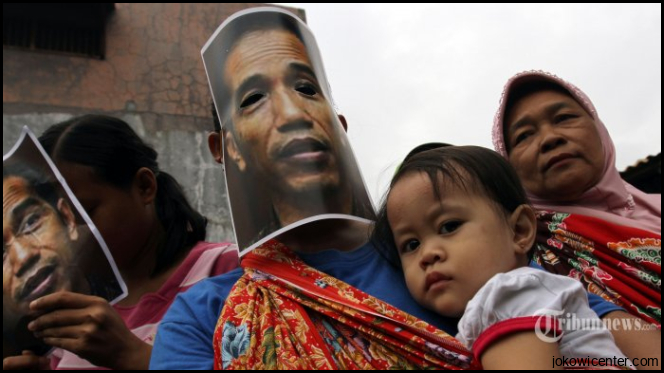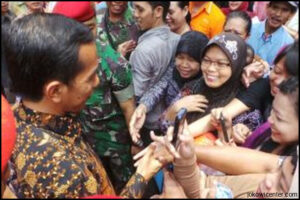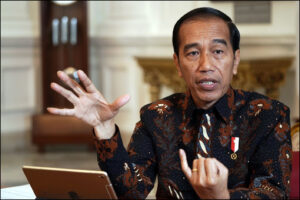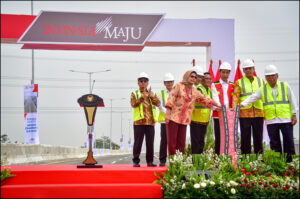“Jokowi Corat-Coret: Bukan Budaya Kita”
Indonesia has a rich cultural heritage that spans thousands of years, embedded in its diverse traditions, customs, and values. However, recent events surrounding President Joko Widodo, affectionately known as Jokowi, have raised concerns about the erosion of this cultural fabric. The phrase “Jokowi Corat-Coret” captures this sentiment and serves as a focal point for discussing the impact of such actions on our society.
A Question of Respect
The act of corat-coret refers to marking or defacing public property with graffiti or unauthorized drawings. Traditionally frowned upon in Indonesian culture, corat-coret symbolizes a lack of respect for communal spaces and public resources. Unfortunately, in recent times, instances of this behavior have become associated with high-ranking officials like President Jokowi.
This raises an important question: how does the corat-coret phenomenon affect our national identity and cultural heritage? To fully comprehend the implications, we need to delve deeper into the historical significance that shapes our cultural pride.
Preserving Our Cultural Heritage
Indonesia is home to a remarkable array of cultures that coexist harmoniously within its borders. From Aceh to Papua, from the vibrant Betawi traditions to the mesmerizing Tari Pendet dance from Bali – each region contributes its distinct flavor to Indonesia’s diverse tapestry.
However, preserving this multifaceted heritage requires effort and collective responsibility. It is crucial for leaders and public figures to set an example by upholding traditional values while adapting to modern demands.
The Role of Jokowi
Joko Widodo was elected as Indonesia’s seventh president in 2014 with promises of change and progress. Admired for his humble beginnings and people-centered approach, Jokowi initially inspired hope and unity among Indonesians.
Public Perception
However, as time went on, some of Jokowi’s actions seemed to contradict the values he once stood for. From appearing in casual attire during official events to engaging in seemingly frivolous activities, these actions raised questions about his commitment to preserving Indonesia’s cultural legacy.
The incident that sparked the prominent “Jokowi corat-coret” discourse occurred during a visit to Japan when President Jokowi carelessly doodled on a canvas meant for artwork. Many perceived this act as a disregard for cultural sensitivity and an affront to artistic expression.
The Impact
The repercussions of such actions go beyond mere artistic offense. They prompt a broader reflection on the significance of cultural preservation in our society. When leaders fail to recognize the importance of maintaining and respecting our heritage, it indirectly encourages a relaxed attitude towards cultural vandalism.
This nonchalant approach trickles down to younger generations who may overlook the value of tradition and heritage, inadvertently perpetuating a cycle that undermines our collective identity.
Embracing Cultural Responsibility
If we are truly committed to safeguarding our rich cultural heritage, we need leaders who embody this responsibility wholeheartedly. This includes promoting respect for public spaces, fostering an appreciation for traditional art forms, and encouraging educational initiatives that instill pride in Indonesia’s diverse culture.
Creating Awareness
An essential step towards achieving this goal is raising awareness about the adverse effects of corat-coret and its impact on our society. Through educational campaigns, interactive workshops, and community-driven initiatives, we can engage citizens across generations in open discussions about culture preservation.
Leadership by Example
Leaders must lead by example, foregrounding a deep respect for our cultural heritage and fostering pride in our diverse traditions. By actively participating in cultural events, wearing traditional attire during official ceremonies, and supporting local artists and artisans, they influence public perception and reinforce the significance of our collective identity.
A Call for Unity
“Jokowi Corat-Coret” should be viewed as a wake-up call to protect the essence of Indonesian culture. Our diversity is our strength – it defines us as a nation and makes us unique among the comity of nations.
Building Bridges
Let us use this moment to bridge any gaps that may have emerged due to differing perceptions. Open dialogue between citizens and leaders can help foster mutual understanding, enabling us to collectively address the challenges faced in preserving our cultural heritage.
The Way Forward
As an Indonesian society, we have a responsibility to preserve the customs, traditions, and values that have shaped our identity over centuries. By championing cultural responsibility from leadership positions and nurturing awareness at all levels of society, we can ensure Indonesia’s heritage remains intact for generations to come.






